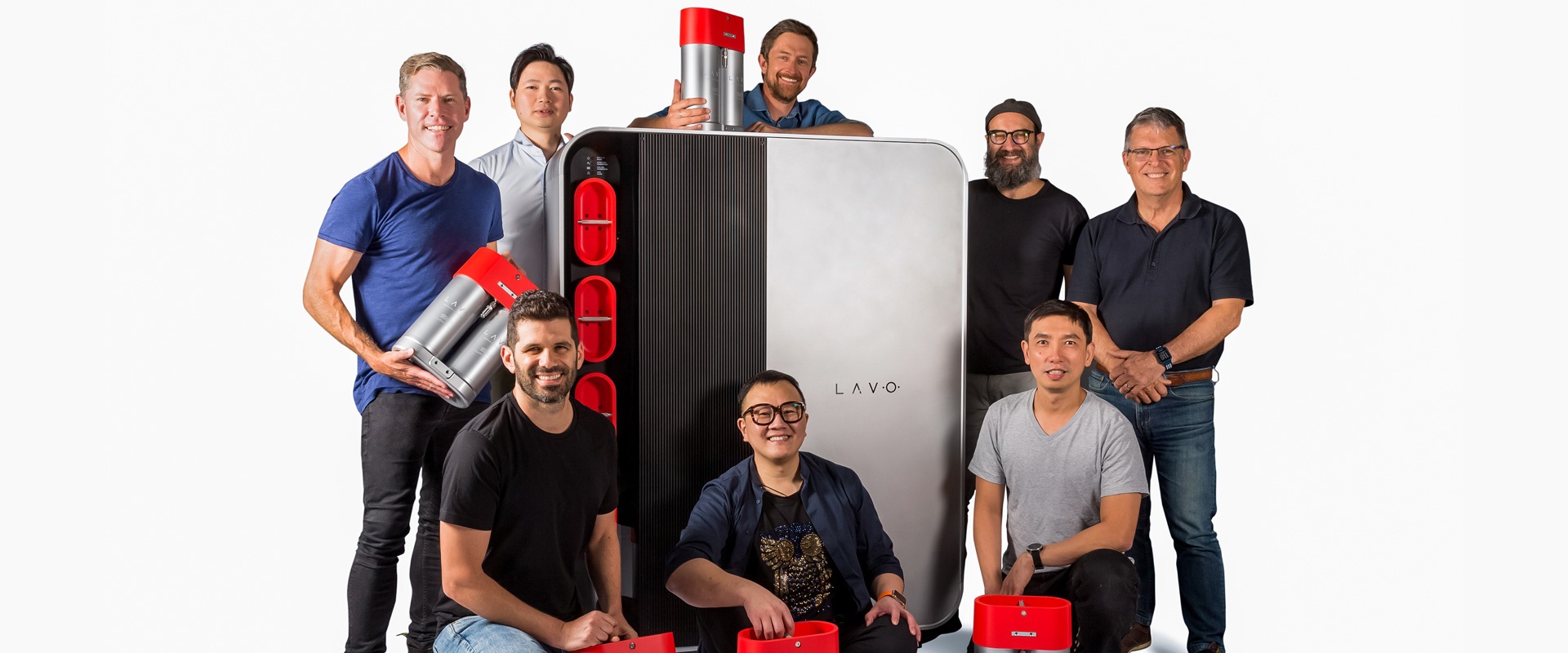You’ve heard of the Powerwall by Tesla – a lithium ion based battery pack for your home. It’s core purpose is to ensure your home is backed up during outages and can store any excess solar power, should you have a solar system at home.
We’ve also seen the re-emergence of hydrogen – especially for heavy machinery where the energy density and weight advantages almost immediately disqualify current lithium ion tech.
LAVO is betting that hydrogen becomes ubiquitous in the residential/consumer space as well – proposing a 40 kWh hydrogen battery that competes with the Powerwall 2 – which has 3x less capacity than the first iteration of a hydrogen battery from LAVO.
At $34,740, the Australian startup needs early adopter support from wealthy hydrogen enthusiasts to truly buy the time it needs to make it cost competitive with current lithium ion tech. To put it in perspective, most homes don’t need 40 kWh of storage and if you bought 4 Tesla Powerwalls it would cost with installation $33,000…
Why does this matter?
- Hydrogen is a rapidly emerging energy storage solution and demand is beginning to form for more hydrogen.
- Much like it took consumer adoption for lithium ion batteries at scale to make EVs and home batteries more accessible, hydrogen gaining consumer support could rapidly make hydrogen a viable source for energy storage
- Hydrogen production is notorious to be energy inefficient, unlike a lithium ion based solution. If LAVO can find a way to make the cost benefit outweigh the natural inefficiencies of hydrogen production there may be a huge opportunity here
What's next?
- It will be interesting to see adoption curves for LAVO’s solution as that will demonstrate the level of consumer demand there is for hydrogen as storage
- This likely will spur industry wide a race for high capacity batteries – commercial buildings likely will compare high density hydrogen batteries and lithium ion batteries for their backup power
- If adoption from consumers occurs we could see an exponential decline in hydrogen costs
Thoughts
LAVO is one of many startups yet to emerge in the hydrogen economy. The applications for hydrogen based energy storage are numerous, however it requires that significant effort be put into figuring out the economics of implementing hydrogen over the current existing storage alternatives. In many cases hydrogen loses to lithium, but should economies of scale actually support thesis of rapid price reduction – attempting to force hydrogen into the consumer space in any way possible would open up huge opportunities for hydrogen to take over as the primary energy storage technology.
About The Author

Swarnav has over 10 years of experience in the energy & climate tech space, holds 2 patents and is active in the tech, climate and media industries. He specializes in Product/Product Innovation as well as Go-To-Market and Growth Strategy.
By training he’s a Materials Engineer with a background in research from his time at Georgia Tech and University of Illinois (UIUC).
He founded TouchLight a utility backed energy company focused on developing IP for utilities and startups pushing electrification forward. He also serves as the appointed Chairman for the Town of Yorktown’s Climate Smart Communities Task Force, where he helps with drafting legislation and enabling sustainability efforts within the town.
Concurrently, Swarnav founded The Impact to help investors, emerging founders and driven climate enthusiasts discover and identify new climate-tech startups, technologies and opportunities before they hit the traditional media sources.

